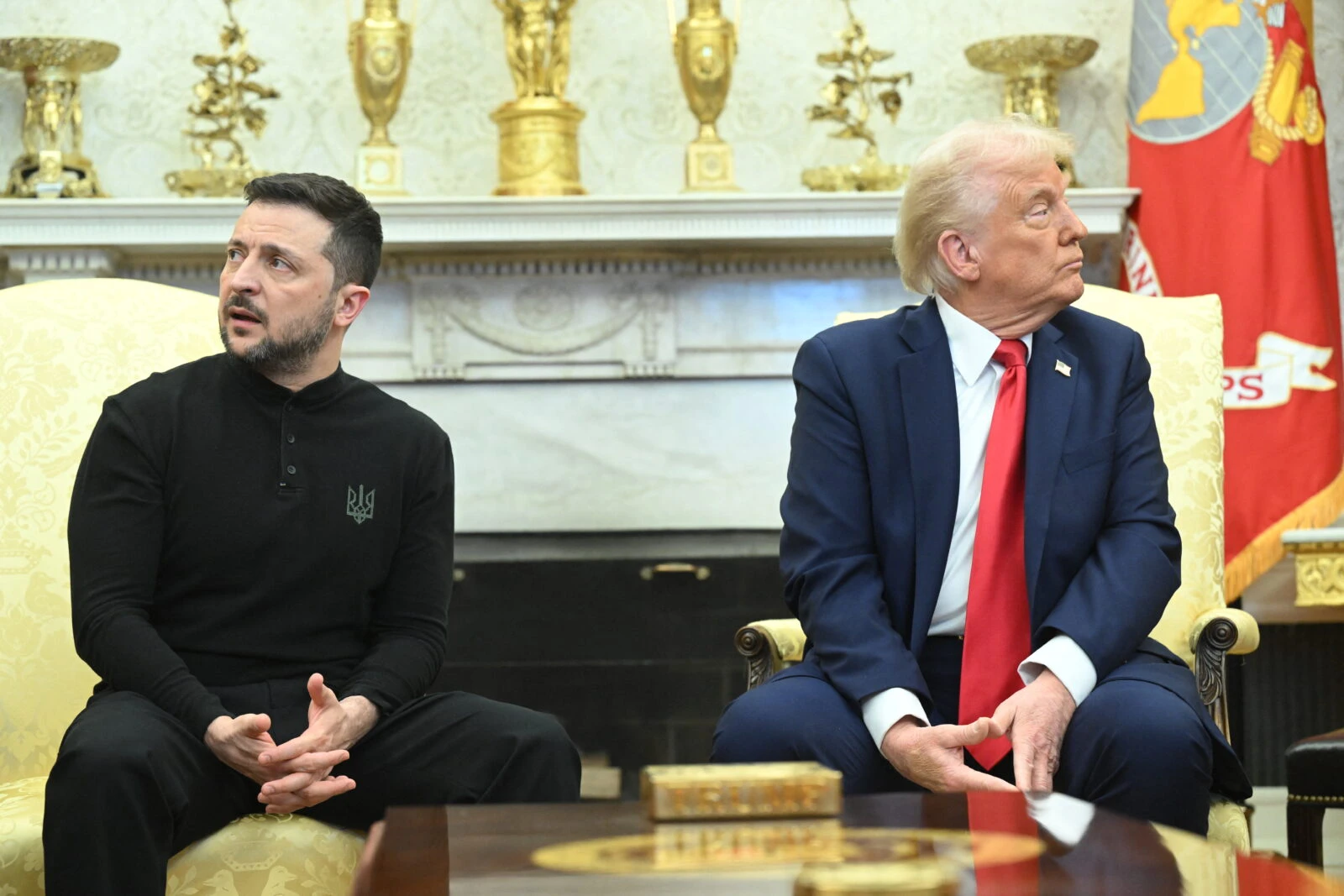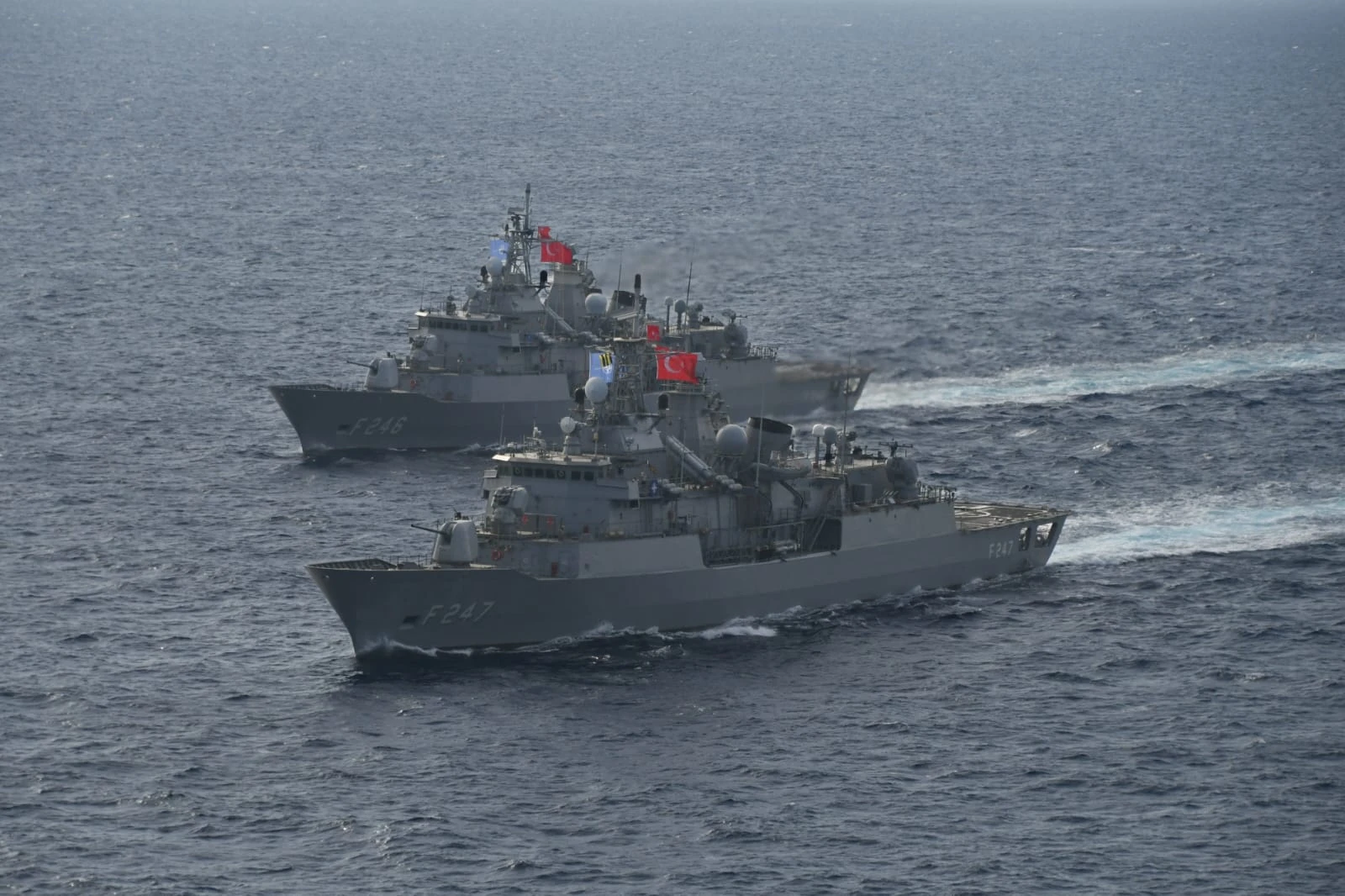Turkish diplomats see opportunity for EU membership amid Trump policies
 British Prime Minister Keir Starmer (1st row-C), French President Emmanuel Macron (1st row- 2nd L), Ukrainian President Volodymyr Zelenskyy (1st row- 2nd R), and Turkish Foreign Minister Hakan Fidan (4th row-R) attend the Ukraine-focused leaders' summit, organized by the UK Foreign Ministry, at the historic Lancaster House estate in London, United Kingdom on March 02, 2025. (AA Photo)
British Prime Minister Keir Starmer (1st row-C), French President Emmanuel Macron (1st row- 2nd L), Ukrainian President Volodymyr Zelenskyy (1st row- 2nd R), and Turkish Foreign Minister Hakan Fidan (4th row-R) attend the Ukraine-focused leaders' summit, organized by the UK Foreign Ministry, at the historic Lancaster House estate in London, United Kingdom on March 02, 2025. (AA Photo)
Recent actions by U.S. President Donald Trump regarding Ukraine have raised concerns across Europe about America’s commitment to traditional alliances, potentially creating an opening for improved relations between the European Union and Türkiye, according to diplomatic experts cited in an analysis by Gonca Senay for the Turkish newspaper Hurriyet.
Trump, who took office in January after defeating Kamala Harris in the 2024 election, has signaled he will prioritize U.S. interests in his approach to Russia-Ukraine relations, NATO, and other international matters.

His recent meeting with Ukrainian President Volodymyr Zelenskyy in the Oval Office has particularly alarmed European leaders, who view it as a troubling indication of America’s future foreign policy direction.
“The tension and distrust in trans-Atlantic relations that emerged with Trump is forcing Europe to put its military affairs in order,” said retired Ambassador Volkan Vural. “This isn’t easy because it requires financial resources. But European Union countries don’t have large armed forces.”
EU’s security vacuum prompts Türkiye to join
This security vacuum could enhance Türkiye’s strategic importance, given its substantial military capabilities.
“A country with an important army like Türkiye’s should be something they desire within the EU’s defense systems,” Vural added. “I don’t know if this immediately aligns with our membership, but it emerges as an important area of cooperation.”
Retired Ambassador Umit Pamir described the current geopolitical landscape as “slippery and unpredictable,” noting that Trump has made it clear that alliances like the EU and NATO are less important to his administration than ensuring American dominance.

“If Trump continues this policy and these concerns deepen, Europe’s security will remain incomplete without the Türkiye dimension,” Pamir explained. “Then they will want Türkiye for their interests.”
Former Ambassador Huseyin Dirioz, head of the Foreign Policy Institute, suggested that these developments could facilitate Türkiye’s EU membership, though he warned that weakening strategic relations between the U.S. and Europe could create significant problems.
Associate Professor Suay Nilhan Acikalin of Hacibayram University noted that EU-Türkiye relations have been frozen for a long time due to what she called “strategic blindness” in European policy toward President (Recep Tayyip) Erdogan. However, she believes current circumstances are forcing Europe to recognize that “European security architecture without Türkiye is unthinkable.”
“In the coming days, I expect positive momentum on the issue of EU membership,” Acikalin said, adding that developments such as the PKK laying down arms could be significant factors both for domestic politics and Europe’s geopolitical needs.



